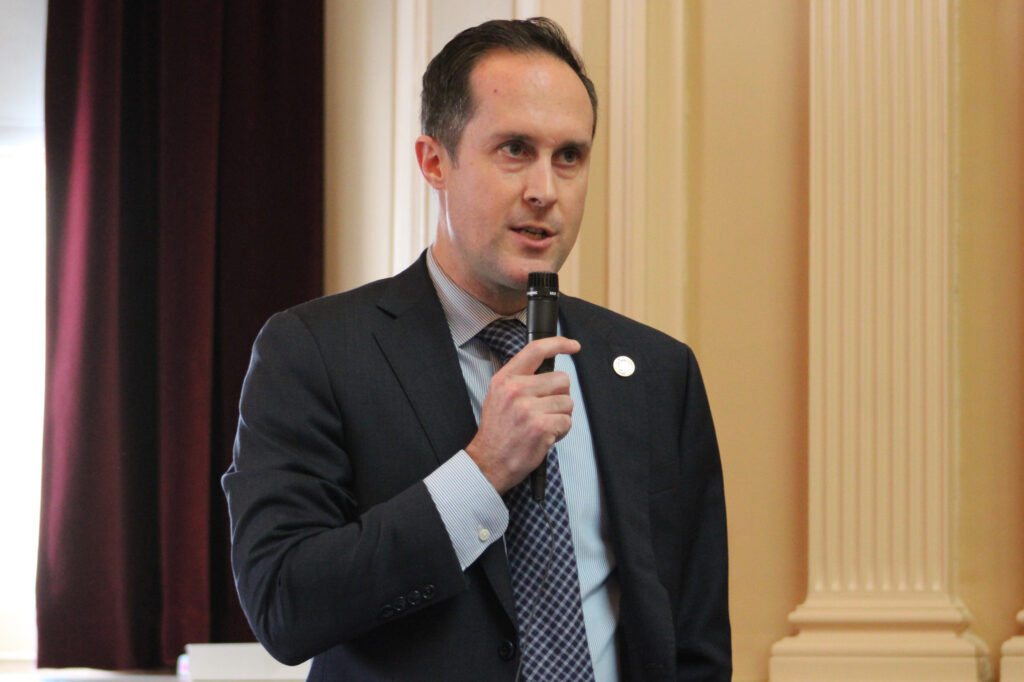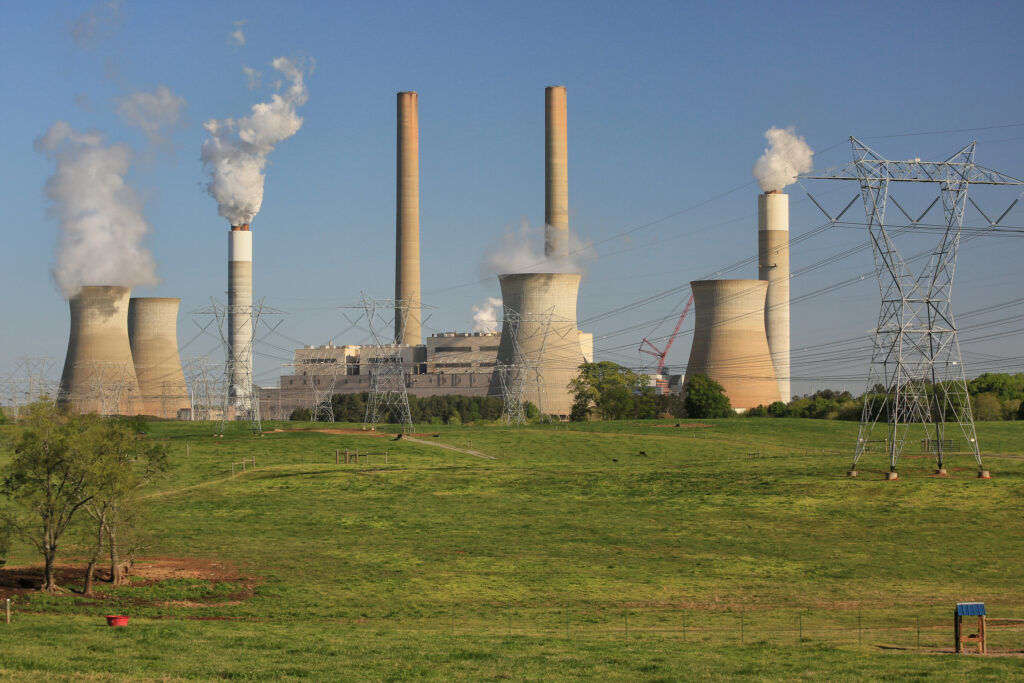As the One Big Beautiful Bill Act squeaked its way through Congress earlier this month, its supporters heralded what they described as a new era for American energy and echoed what has become a familiar phrase among President Donald Trump’s supporters.
“Congress has taken decisive action to advance President Trump’s energy dominance agenda,” said American Petroleum Institute President and CEO Mike Sommers in a statement after the House passed the bill.
Republicans concurred, with legislators ranging from Rep. Mariannette Miller-Meeks of Iowa, chair of the Conservative Climate Caucus, to Energy and Commerce Committee Chairman Rep. Brett Guthrie of Kentucky releasing statements after the bill’s passage championing its role in securing “energy dominance.”
The idea and rhetoric of energy dominance has its roots in the first Trump administration, although a formal definition for the phrase is hard to come by. When Trump signed an executive order this February establishing the National Energy Dominance Council, he included expanding energy production, lowering prices and reducing reliance on foreign entities among the council’s goals, while also emphasizing the importance of oil production and liquefied natural gas (LNG) exports.
The phrase has become something of a battle cry among the president’s supporters, with EPA Administrator Lee Zeldin writing in the Washington Examiner on July 8 that “Trump is securing America’s energy future in a modern-day version of how our Founding Fathers secured our freedom.”
“Through American energy dominance, we’re not just powering homes and businesses,” Zeldin said. “We’re Powering the Great American Comeback.”
But despite claims from Republican officials and the fossil fuel industry that the megabill will help secure energy dominance, some experts worry that the legislation’s cuts to wind and solar actually undermine those goals at a time when electricity demand is rising, limiting America’s ability to add new generation capacity, raising prices for consumers and ceding global leadership in the clean energy transition.
Dan O’Brien, a senior modeling analyst at the climate policy think tank Energy Innovation, said the bill will increase domestic production of oil and gas by increasing lease sales for drilling—mostly in the Gulf of Mexico, onshore and in Alaska, O’Brien said.
A January study commissioned by the American Petroleum Institute reported that a legislatively directed offshore oil and natural gas leasing program, which API says is similar to the measures included in the One Big Beautiful Bill Act months later, would increase oil and natural gas production by 140,000 barrels of oil equivalent (BOE) per day by 2034.
That number would rise to 510,000 BOE per day by 2040, the study says.
Losses Likely to Outweigh the Gains
However, O’Brien said the gains America can expect from the fossil fuel industry pale in comparison to losses from renewable energy.
Energy Innovation’s analysis projects that less than 20 gigawatts of additional generation capacity from fossil fuels can be expected by 2035 as a result of the bill, compared to a decrease of more than 360 gigawatts in additional capacity from renewable energy.
The difference between those numbers—a decrease of 344 gigawatts—is roughly equivalent to the energy use of about 100 million homes, O’Brien said.
According to O’Brien, if the One Big Beautiful Bill had not been passed, the U.S. could have expected to add around 1,000 gigawatts of electricity generation capacity in the next 10 years.
But as a result of the bill, “around a third of that will be lost,” O’Brien said.
Those losses largely stem from the bill’s rollback of incentives for wind and solar projects.
“Solar and wind are subject to different—and harsher—treatment under the OBBB than other technologies,” according to the law firm Latham & Watkins. Tax credits for those projects are now set to phase out on a significantly faster timeline, rolling back some of the commitments promised under the Inflation Reduction Act.
Lucero Marquez, the associate director for federal climate policy at the Center for American Progress, said that removing those incentives undercuts America’s ability to achieve its energy needs.
“America needs affordable, reliable and domestically produced energy, which wind and solar does,” Marquez said. “Gutting clean energy incentives really just does not help meet those goals.”
New projects will also be subject to rules “primarily intended to prevent Chinese companies from claiming the tax credits and to reduce reliance on China for supply chains of clean energy technologies,” the Bipartisan Policy Center wrote in an explainer.
However, those rules are “extremely complex” and could lead to “decreased U.S. manufacturing and increased Chinese dominance in these supply chains, contrary to their goal,” according to the think tank.
Surging Energy Prices
O’Brien said Energy Innovation’s modeling suggests that the loss in additional generation capacity from renewable energies will lead existing power plants, which are more expensive to run than new renewable energy projects would have been, to run more frequently to offset the lack of generation from wind and solar projects not coming online.
The consequences of that, according to O’Brien, are that energy prices will rise, which also means the amount of energy produced will go down in response to decreased demand for the more expensive supply.
An analysis by the REPEAT Project from the Princeton ZERO Lab and Evolved Energy Research similarly predicted increased energy prices for consumers as a result of the bill.
According to that analysis, average household energy costs will increase by over $280 per year by 2035, a more than 13 percent hike.
One of the authors of that analysis, Princeton University professor Jesse D. Jenkins, did not respond to interview requests for this article but previously wrote in an email to Inside Climate News that Republicans’ claims about securing energy dominance through the bill “don’t hold up.”
In an emailed statement responding to questions about those analyses and how their findings align with the administration’s goals of attaining energy dominance, White House assistant press secretary Taylor Rogers wrote that “since Day One, President Trump has taken decisive steps to unleash American energy, which has driven oil production and reduced the cost of energy.”
“The One, Big, Beautiful Bill will turbocharge energy production by streamlining operations for maximum efficiency and expanding domestic production capacity,” Rogers wrote, “which will deliver further relief to American families and businesses.”
In an emailed statement, Rep. Guthrie said that the bill “takes critical steps toward both securing our energy infrastructure and bringing more dispatchable power online.”
“Specifically, the bill does this by repairing and beginning to refill the Strategic Petroleum Reserve that was drained during the Biden-Harris Administration, and through the creation of the Energy Dominance Financing program to support new investments that unleash affordable and reliable energy,” the Energy and Commerce chairman wrote.
Cullen Hendrix, a senior fellow at the Peterson Institute for International Economics, also said that the bill “advances the administration’s stated goal of energy dominance,” but added that it does so “primarily in sunsetting, last-generation technologies, while ceding the renewable energy future to others.”
“It wants lower energy costs at home and more U.S. energy exports abroad—for both economic and strategic reasons … the OBBB delivers on that agenda,” Hendrix said.
Still, Hendrix added that “the United States that emerges from all this may be a bigger player in a declining sector—fossil fuels—and a massively diminished player in a rapidly growing one: renewable energy.”
“It will help promote the Trump administration’s ambitions of fossil dominance (or at least influence) but on pain of helping build a renewable energy sector for the future,” Hendrix wrote. “That is net-negative globally (and locally) from a holistic perspective.”
This story is funded by readers like you.
Our nonprofit newsroom provides award-winning climate coverage free of charge and advertising. We rely on donations from readers like you to keep going. Please donate now to support our work.
Donate Now
Adam Hersh, a senior economist at the Economic Policy Institute, argued that he sees a lot in the bill “that is going to move us in the opposite direction from energy dominance.”
“They should have named this bill the ‘Energy Inflation Act,’ because what it’s going to mean is less energy generated and higher costs for households and for businesses, and particularly manufacturing businesses,” Hersh said.
Hersh also said that even if the bill does lead to increased exports of U.S. produced energy, that would have a direct negative impact on costs for consumers at home.
“That’s only going to increase domestic prices for energy, and this has long been known and why past administrations have been reluctant to expand exports of LNG,” Hersh said. “That increased demand for the products and competition for the resources will mean higher energy prices for U.S. consumers and businesses.”
“Pushing Against Energy Dominance”
Frank Maisano, a senior principal at the lobbying firm Bracewell LLP, said that although the bill creates important opportunities for things such as oil and gas leasing and the expansion of geothermal and hydrogen energy, the bill’s supporters “undercut themselves” by limiting opportunities for growth in wind and solar.
“The Biden folks tried to lean heavily onto the energy transition because they wanted to limit emissions,” Maisano said. “They wanted to push oil and gas out and push renewables in.”
Now, “these guys are doing the opposite, which is to push oil and gas and limit wind and solar,” Maisano said. “Neither of those strategies are good strategies. You need to have a combination of all these strategies and all these generation sources, especially on the electricity side, to make it work and to meet the challenges that we face.”
Samantha Gross, director of the Brookings Institution’s Energy Security and Climate Initiative, said that while she isn’t concerned about whether the U.S. will build enough electricity generation to meet the needs of massive consumers like data centers and AI, she is worried that the bill pushes the next generation of that growth further towards fossil fuels.
“I don’t think energy dominance—not just right this instant, but going forward—is just in fossil fuels,” Gross said.
Even beyond the One Big Beautiful Bill, Gross said that many of the administration’s actions run counter to their stated objectives on energy.
“You hear all this talk about energy dominance, but for me it’s just a phrase, because a lot of things that the administration is actually doing are pushing against energy dominance,” Gross said.
“If you think about the tariff policy, for instance, ‘drill, baby, drill’ and a 50 percent tariff on pipeline steel do not go together. Those are pulling in completely opposite directions.”
Aside from domestic energy needs, Gross also worried that the pullback from renewable energy will harm America’s position on the global stage.
“It’s pretty clear which way the world is going,” Gross said. “I worry that we’re giving up … I don’t like the term ‘energy dominance,’ but future leadership in the world’s energy supply by pulling back from those.”
“We’re sort of ceding those technologies to China in a way that is very frustrating to me.”
Yet even in the wake of the bill’s passage, some experts see hope for the future of renewable energy in the U.S.
Kevin Book, managing director at the research firm ClearView Energy Partners, said that the bill “sets up a slower, shallower transition” toward renewable energy. However, he added that he doesn’t think it represents the end of that transition.
“Most of the capacity we’re adding to our grid in America these days is renewable, and it’s not simply because of federal incentives,” Book said. “So if you take away those federal incentives, there were still economic drivers.”
Still, Book said that the final impacts of the Trump administration’s actions on renewable energy are yet to be seen.
“The One Big Beautiful Bill Act is not the end of the story,” Book said. “There’s more coming, either regulatorily and/or legislatively.”
About This Story
Perhaps you noticed: This story, like all the news we publish, is free to read. That’s because Inside Climate News is a 501c3 nonprofit organization. We do not charge a subscription fee, lock our news behind a paywall, or clutter our website with ads. We make our news on climate and the environment freely available to you and anyone who wants it.
That’s not all. We also share our news for free with scores of other media organizations around the country. Many of them can’t afford to do environmental journalism of their own. We’ve built bureaus from coast to coast to report local stories, collaborate with local newsrooms and co-publish articles so that this vital work is shared as widely as possible.
Two of us launched ICN in 2007. Six years later we earned a Pulitzer Prize for National Reporting, and now we run the oldest and largest dedicated climate newsroom in the nation. We tell the story in all its complexity. We hold polluters accountable. We expose environmental injustice. We debunk misinformation. We scrutinize solutions and inspire action.
Donations from readers like you fund every aspect of what we do. If you don’t already, will you support our ongoing work, our reporting on the biggest crisis facing our planet, and help us reach even more readers in more places?
Please take a moment to make a tax-deductible donation. Every one of them makes a difference.
Thank you,

















